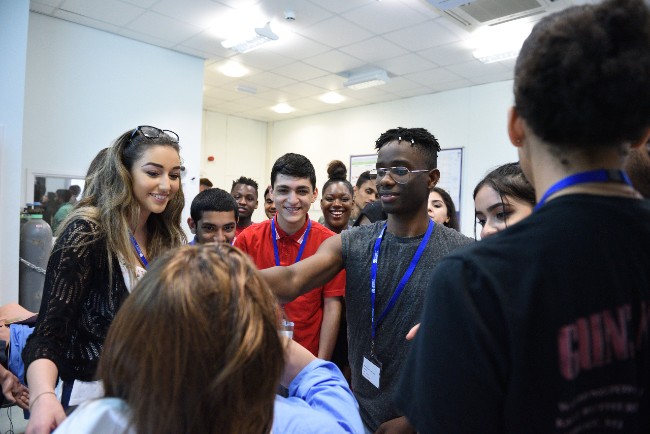Our position on: Contextual University Offers

The University of Bristol believes that a student community which reflects our society benefits everyone, and our commitment to fair access is demonstrated by our use of contextual offers. Contextual offers have diversified our student intake by attracting and supporting those from disadvantaged and underrepresented backgrounds, and our data shows that these students go on to achieve excellent outcomes. We believe that the use of contextual data to assess the potential of future students is an effective tool to widen participation.
State of Play
University admission offers have historically been based on academic performance e.g. predicted grades. However academic potential is not always reflected in exam grades, and contextual offers are one way to consider the structural factors and personal circumstances of students that can influence their achievement. The Office for Students (OfS) has stated that ‘A-level grades can only be considered to be a robust measure of potential if they are considered alongside the context in which they are achieved’, and has recognised the evolving approach taken by Bristol.
We have offered a two-grade reduction below standard entry requirements for A-levels since 2016. Making contextual offers to students who are: care leavers; living in postcodes with low progression to higher education, entering the University from an aspiring state school (those in the lowest 40% nationally), completing a University of Bristol intensive outreach programme; or attending a University-sponsored school.
Data from the Office for Students shows no change in the proportion of undergraduates entering higher education from significantly disadvantaged groups since 2017. The unequal impact of Covid-19 on young people and the increased competition for university places reinforces the need for universities to take action to widen participation. To support this, the University of Bristol have introduced Free School Meals as a contextual offer criterion from 2023.
Policy recommendations
- Contextual admissions should become the norm across the sector, with universities using data available through UCAS to support such initiatives.
- The sector should build an evidence base for contextual admissions based on successful degree outcomes and continuation rates.
- Universities should provide accessible information on their policies and practice to prospective students, including in Access and Participation Plans.
- Universities should have flexibility to shape and determine their own contextual offering alongside robust evaluation.
- Transparent monitoring, reporting and evaluation is needed to support students with contextual offers achieve excellent outcomes.
Evidence
Contextual admissions are a key tool in diversifying our student body. In the past six years the number of students entering the University of Bristol from an aspiring state school rose from 960 to 1556.1
17% of our students are from neighbourhoods where few people progress to higher education
Since 2018, 90.9% of contextual offer holders have received a good degree (2:1 or 1st) on average. This compares to 91.1% of standard offer holders.
Students who entered via contextual offers also have excellent continuation rates with almost 94.7% of contextual offer students continuing with their studies compared with 95.4% of standard offer holders.2
The majority of students who come to the University of Bristol with a contextual offer succeed in the graduate job market or go on to further study.
 (1)-650x589.jpeg) Case Study: Lauren Hutfield
Case Study: Lauren Hutfield
Lauren applied to the University of Bristol to study Politics and International Relations for 2018 entry and was made a contextual offer based on attending an aspiring state school. She met the terms of her contextual offer and successfully enrolled at Bristol.
Lauren went on to achieve excellent outcomes and was awarded a 1st in her undergraduate degree. She was one of three students to secure a Black Bristol Scholarship, supporting her progress to an MSc in Development and Security at the University of Bristol. Whilst a student, Lauren made an invaluable contribution to decolonising the curriculum work and social mobility causes.
After graduating from her Masters, Lauren secured a prestigious place on the Civil Service Fast Stream which carried only a 1.8% success rate for applicants in 2021. She has described this as her ‘biggest achievement to date’ and has reflected on how she ‘could have been in a very different position’ had she not received a contextual offer. Lauren now aspires to work with the Foreign, Commonwealth and Development Office on international development projects. As a beneficiary of a contextual offer, Lauren remains passionate about initiatives which enable social mobility in higher education.
Further Information
The Russell Group has recognised Bristol’s ‘innovative contextual admissions policy’ in its Pathways for Potential report.
We remain equally committed to the Russell Group’s position on transparency in admissions to address ‘the perception that prospective applicants and others do not understand how contextual data and admissions policies are being applied’.
Our approach to contextual offers aligns with key recommendations made by experts in the sector.
Footnotes
2. The OfS’s metric of continuation is whether a student is still enrolled at a university one year and two weeks after starting their degree.